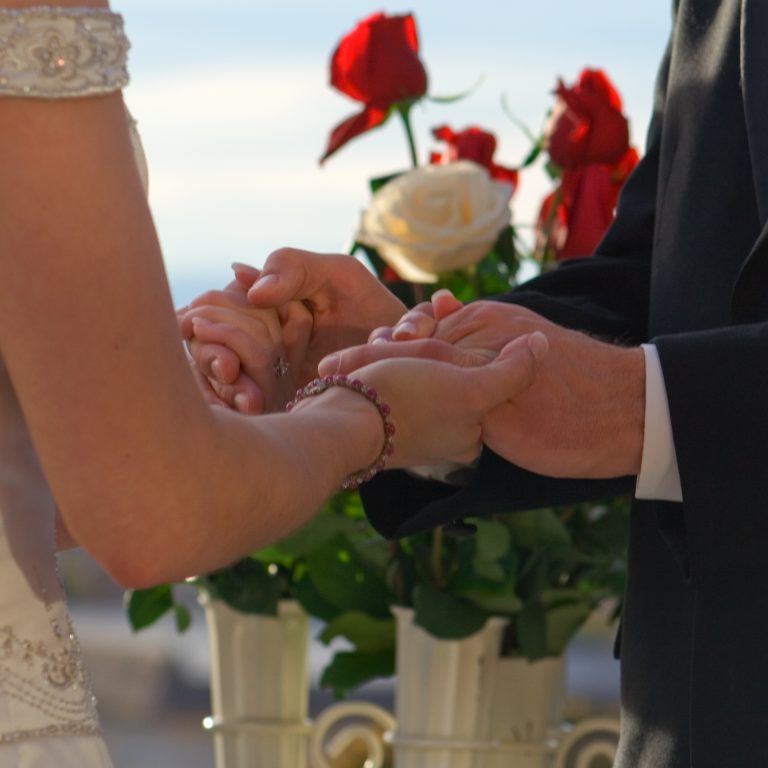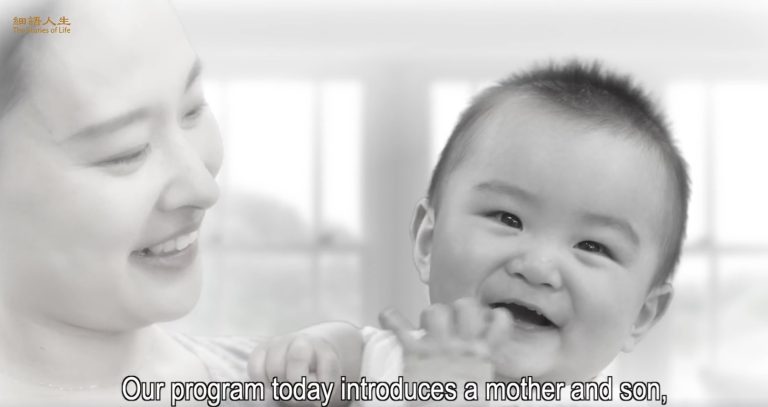As the most pivotal event in many people’s lives, getting married is not to be taken lightly. Today’s casual attitude towards marriage, however, may be the root of many social problems. Domestic violence, cold violence, the seven-year itch, extra-marital relationships, living together out of wedlock, and readiness to divorce have degraded social morality and generated enormous karma which we face in the form of disease, disaster, and general unhappiness..
Changing attitudes toward marriage may be due to the overemphasis on self, romantic ideals, indulgence in desire, and disbelief in cause and effect. With social demoralization, as with any problem, one needs to address the root cause to find a solution. If we take a look at the wisdom of traditional culture and understand marital relationships of the past, we may find the key to restoring morality in society.
Predestined relationship
In describing the destiny between a husband and wife, a Chinese proverb goes, “it takes one hundred years to cultivate a relationship for two to share a boat, and one thousand years for two to share a bed.” In the vast sea of people, that two strangers are able to come together is truly incredible. Traditional Chinese culture attributes this relationship to karmic links from previous lives.
Although love may be what brings people together, it is grace and loyalty that keep them together. While the feeling of being “in love” is very powerful, the importance placed on romance is recent — in Chinese, the modern word for “romance” comes from English. With the modern emphasis placed on individuality, people have forgotten how to compromise for the sake of their sacred vows, and their own desires are often placed before more important values.
In ancient times, complete rites and moral ethics bound the feelings between men and women. People believed that “love” had to be based on marriage, not the other way around. Marriage was orderly, stable, rational, and recognized and respected by the whole of society. All “love” outside the foundation of marriage was not permitted and considered illegitimate.

Success
You are now signed up for our newsletter
Success
Check your email to complete sign up
Marriage is not child’s play. Even the lead up to it is laden with intricate ceremony. During the Zhou Dynasty (1045-221 B.C.), the longest lasting, and one of the most culturally significant dynasties in China, the “six etiquettes” were established. 納採 (Nà cǎi, proposal), 問名 (wèn míng, birthday matching), 納吉 (nà jí engagement), 納征 (nà zhēng, wedding gifts, 請期 (qǐng qī, selecting the date), and 親迎 (qīn yíng, wedding ceremony) were the steps everyone took in approaching marriage. Birthday matching was done with the help of a fortune teller, who would predict whether the marriage would be successful based on zodiac compatibility.
In conforming to these rites, people showed their respect for gods and Heaven, and emphasized filial piety. They would pay homage to Heaven and Earth in order to be formally acknowledged, and also pay homage to their parents to receive their blessings.
The ancient attitude towards marriage was that destiny, rituals, grace and loyalty all came before romance and lust. Modern people’ attitudes towards marriage have become reversed. The two examples below of ancient married couples serve to remind us how to view marriage as sacred and solid.
Yan Ying was faithful to his aged wife
During the Spring and Autumn and Warring States period (770-221 BC), there was a famous and wise minister in the State of Qi, the renowned Yan Ying. Duke Jing, Qi’s leader, had a daughter whom he cherished deeply. Impressed with Yan Ying’s talent, he offered to marry his daughter to him. Yan Ying was already married, but even so, the duke paid him a visit to discuss the engagement over a meal.
As Yan’s wife — who was older and had lost her beauty — was busy entertaining the guests, the king noticed her and asked Yan, “Is that your wife?” Yan answered truthfully, “Yes, she is my wife.” Hearing this, the duke sighed and said, “Alas, she is old and ugly! I have a daughter who is young and beautiful, wouldn’t you like to marry her?”
Hearing this, Yan put down his chopsticks, quickly got up from his seat, and respectfully and solemnly replied to the duke, “My wife is old and not beautiful, but I have lived with her for a long time. When a woman marries you in her youth, she entrusts her life to you.”
“My wife entrusted her life to me when she was young, not caring about my rank, or looks, and I accepted her. It is a great honor that Your Highness now offers me his daughter in marriage! But as a man, standing between Heaven and Earth, I have accepted my wife’s trust. How could I turn my back on her and accept someone else?”
Although Yan Ying held a high ranking position, he did not forsake his old and plain wife in the face of temptation. His virtue and noble character has been admired for centuries.
Yu and his wife respected each other like guests
During the Spring and Autumn Period, Xi Que, a senior official of the State of Jin, was praised for his respectful relationship with his wife. “Ru Bin Township (Guest of Honor Township)” in Qingjian, Shanxi Province, is named after him.
During the region of Jin’s Duke Wen, both Xi and his father served as officials in the court. They were later relegated to common people because they were implicated in a legal case. When he returned to his hometown, he dressed modestly, plowed the fields and lived in harmony with his neighbors.
WhenDuke Wen sent his minister Jiu Ji on a mission abroad, Jiu Ji passed Xi’s village in the Ji (冀) region and saw him hoeing in the field as his wife brought him food. She politely offered the food to him, he accepted respectfully and treated his wife like a guest of honor. Jiu Ji was deeply impressed and told the duke after he returned to the country, “I have been to Ji and I saw that Xi and his wife respected each other like guests. I think that respecting each other is a manifestation of virtue. If one has virtue, he can rule the country. Please bring Xi back and reappoint him to the court.”
The Duke of Jin took his advice and made Xi Que a minister of the army. Later a war broke out, Xi led the troops on the front line, where they vanquished the enemy. He was promoted and awarded a parcel of land. Later people called the area where Xi had hoed the “Field of Accumulated Virtue” (聚德田), and built a pavillion there. The area where Xi lived was renamed “Honored Guest” (如賓) Township.
Treating marriage lightly can quickly erode the morality of an entire society. Observing tradition and propriety brings harmony and stability to society, and gives future generations upright standards to live by.







